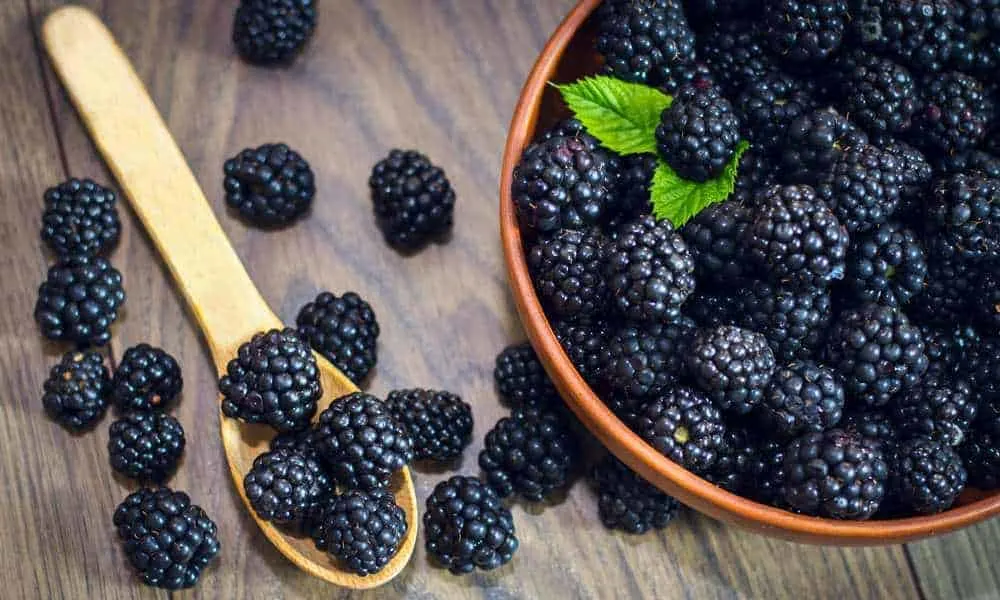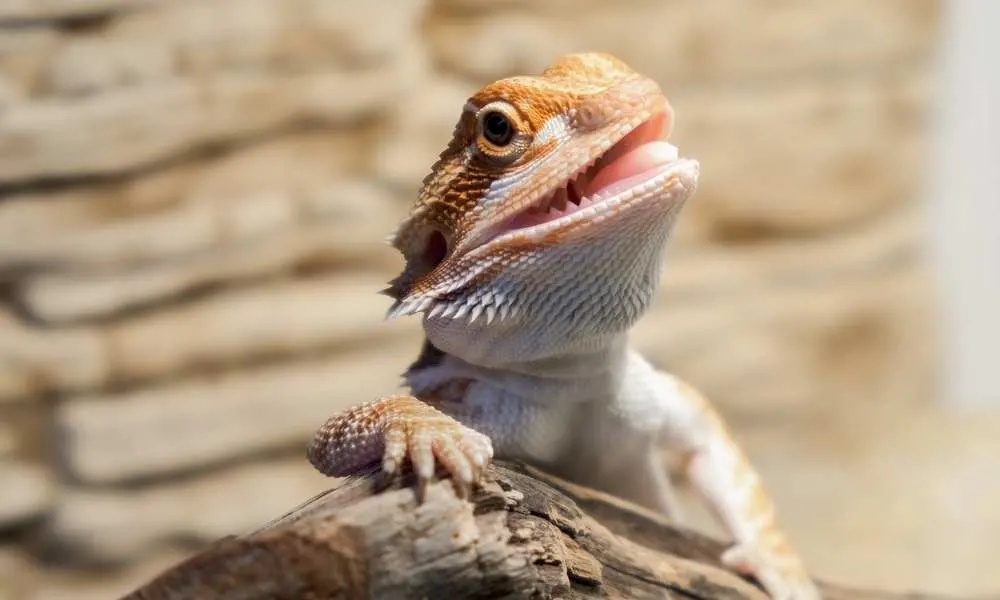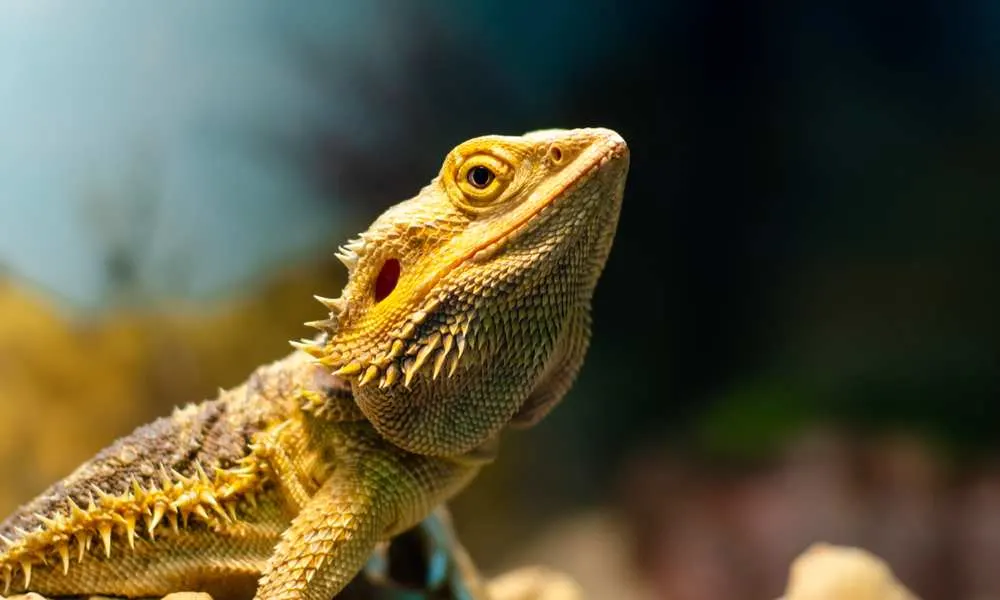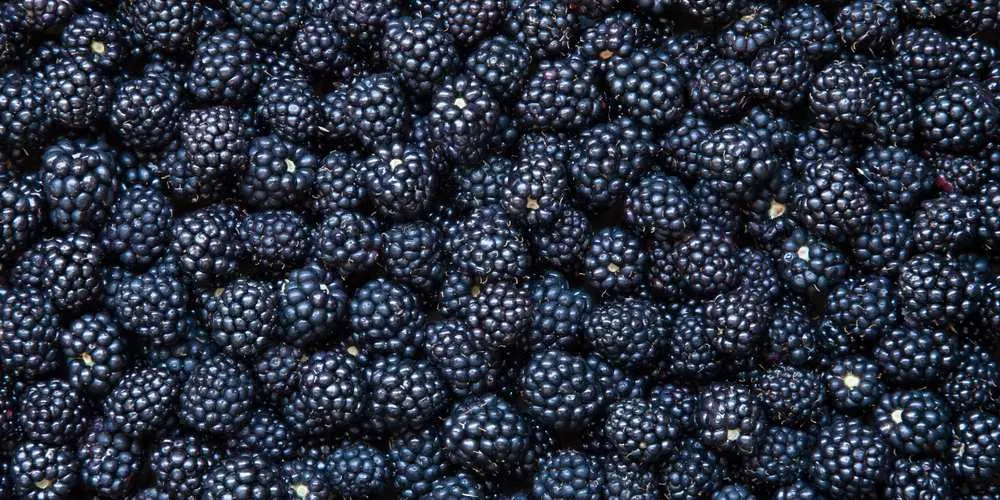Bearded dragons love to munch on different types of fruits. These lovable reptiles love the stuff so much that they would eat it non-stop if they had the chance. However, as a responsible beardie owner, you know that a balanced diet is the number one priority with these creatures.
Fruits are, unfortunately, only a treat to your bearded dragon. Sure, some fruits are a better option than others. So, if you’re thinking of expanding on fruits as a treat option for your beardie, you’ve probably come across blackberries every once in a while.
Heck, they’re even shaped like treats! So that leads us to a question: Can bearded dragons eat blackberries? Well, we did a little research.
To shorten the torment:
Blackberries are safe for your reptile! However, this tiny fruit does come with some drawbacks and limitations. In this article, we’re covering all the info you need about blackberry consumption in bearded dragons.
Let’s get started!

Can Bearded Dragons Eat Blackberries?
Just like most berry fruits, blackberries are a safe treat for your beardie. This small, deep purple fruit has many benefits for animals, just like it does for humans. After all, our species has enjoyed blackberries for thousands of years, and we still do.
We consume them raw, dried, juices, and various desserts. Heck, we even make wine out of them! This sweet berry is from the Rosaceae family. It is high in a lot of health-promoting nutrients. This is why they can sometimes be an excellent addition to your lizard’s diet.
However, let’s take a small break before we start praising the blackberry too much. It’s important to point out what a bearded dragon’s diet should look like. A younger dragon’s diet consists of around 70% of insects and 30 to 20% of veggies, leafy greens, and fruits.
However, as bearded dragons grow older, they start enjoying a more plant-based diet. Depending on its age, a beardie’s diet should be around 50% of plant-based and 50% animal-based materials.
We should look closely at their plant-based material consumption. Around 80 to 90% of the plants should be vegetables and flowers. That means that only 10 to 20% of their plant consumption should be fruits. That’s not a lot!
So, why is that? And where does that leave our blackberries in the lizard world?
Fruits are mainly considered treats to beardies, and blackberries are no exception. As you probably know, the culprit behind the sweet taste in fruits is sugar. Sugar in higher quantities isn’t really good for reptiles. But more on that later.
Also, fruits are considered to be deficient in minerals. That’s another reason why some vets don’t recommend them in enormous quantities.
Nutritional Value
To understand blackberry consumption in bearded dragons better, we should look at their nutritional profile.
Here’s the nutritional value of 100 grams of blackberries.
| Carbohydrate | 9.61 grams |
| Fiber | 5.3 grams |
| Sugars | 4.88 grams |
| Calcium | 29 milligrams |
| Phosphorus | 22 milligrams |
| Vitamin C | 21 milligrams |
| Potassium | 162 milligrams |
| Magnesium | 20 milligrams |
As you can see, blackberries are high in some minerals. Plus, they provide loads of nutrients! These dark-colored berries are filled with antioxidants that protect the body from free radicals.
Also, it’s essential to look at its calcium quantity. Calcium is very important for bearded dragons. This is why owners tend to sprinkle a bit of calcium powder over their dragon’s meals while they’re growing up. Although berries do have a fair amount of calcium, there’s a catch.
Blackberries contain oxalates. This substance can bind calcium and other minerals, and it prevents their absorption. Basically, the job of this substance is to get rid of extra calcium in the body. Bearded dragons need calcium because they rely on it for strong bones.
You’ve undoubtedly heard of metabolic bone disease in bearded dragons. Beardies get this disease when they don’t have enough calcium in their system.
Phosphorus is another substance that can prevent the absorption of calcium. That’s the reason why bearded dragon owners should avoid giving their pets high-phosphorus foods. So, even though blackberries do contain calcium, it’s good to keep in mind these things.
Luckily, the ratio of calcium to phosphorus in blackberries is in the safe range for these lizards. However, when feeding your dragon, you shouldn’t be generous with these fruits.

Health Benefits
We can imagine that mere numbers in a table don’t really mean much to you. Well, now that we covered the main stuff about blackberry nutrition, we can start introducing you to the potential benefits!
For starters, let’s cover the antioxidants! As we mentioned above, berries have a significant amount of antioxidants. Some studies even suggest that next to pomegranates, blackberries have the highest antioxidant activity.
These berries contain anthocyanins, ellagic acid, and resveratrol. Besides protecting your dragon’s cells from free radicals, these plant compounds do a great job at preventing diseases.
Besides the antioxidants, blackberries are filled with water. Water makes up 85 percent of this fruit! This is beneficial because it can keep your dragon hydrated. Keep in mind that even though hydration is essential, it can also have its “bad” sides with dragons.
Too much water can lead to diarrhea. This is why watery fruits can be okay, but only when given in moderation. The minerals in blackberries, on the other hand, help your beardies immune system and metabolism.
For a tiny fruit, a blackberry is very high in fiber. Although this can also benefit primarily by promoting a healthy digestive system, too much can lead to issues in dragons. More on that later.
And last but not least – the vitamins. This dark-colored fruit has a good amount of vitamin A, K, and C. A couple of berries from time to time can benefit their eyesight, immune system, growth, blood, and bones!
Yikes! It looks like most of the benefits can also lead to some potential risks. Well, we’re just getting started.

Potential Health Risks
As you’ve already learned – blackberries have a lot of benefits. However, there are also many reasons why they aren’t a staple food for these reptiles.
Just like we mentioned before, the sugar in blackberries can be too high for your dragon. Sugar in high quantities can cause your lizard some unnecessary health issues. Besides a tummy ache, sugar can also lead to diarrhea. In some extreme cases, that can lead to dehydration.
When digesting their food, bearded dragons use a process called fermentation. That means that the bacteria and gut flora break down most of the ingested food. Sugar can interfere with that balance, causing stomach issues.
This can occur if you’ve given too many blackberries at once to your dragon. Or if you often feed them with these fruits. However, this isn’t the only concern about the sugar in berries.
Bearded dragons have only one set of teeth. Their teeth are prone to diseases and can get easily damaged. Just like in humans, sugar isn’t good for teeth. Too many citrusy or sugary fruits can damage their dental health.
Quantity Is Key
Although it seems like blackberries mainly harm bearded dragons, they are, in general, a lizard-safe food. This is because quantity plays a vital role in whether this fruit can be beneficial or health-damaging.
So, how many blackberries can bearded dragons eat?
For starters, you can’t give your bearded dragon blackberries every day. Blackberries are safe for dragons when given approximately once a month. Although that’s already quite rare, the portions shouldn’t be significant either.
Experts suggest that blackberries should only be served as salad toppers. These fruits should only be given as a special treat, very rarely and in small portions.
When giving your reptile blackberries, make sure that they’re thoroughly washed. Berries and other fruits are often sprayed with pesticides that can damage your dragon’s well-being. Also, remove the leaves and stems. They’re not toxic, but they provide no nutritional value.
Your dragon can enjoy frozen berries as much as he can want the raw ones. However, the frozen ones provide slightly less nutrition than the raw ones. Dried berries, on the other hand, are not recommended because of the added flavorings and sugars.

Final Words
Blackberries are not the best option for your bearded dragon. Even though they’re not toxic for them, they can provide more risks than benefits. However, that doesn’t mean that they can’t enjoy a small portion from time to time!
Quantity is critical with this small fruit. So, a finely chopped blackberry or two once a month can actually be good for your reptile. If you want your dragon to enjoy the benefits of this dark berry, make sure that the portion is right!
Read Also: Can Bearded Dragons Eat Blueberries?


